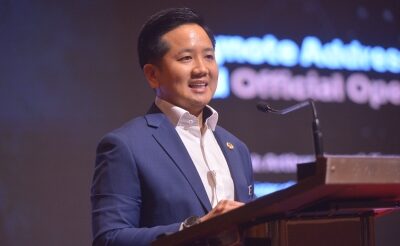Science Ministry committed to increasing participation of Malaysian youth in innovation, commercialisation, says deputy minister

KUALA LUMPUR, Aug 5 — Youth in the country must come together to develop a high momentum in science, technology, innovation and commercialisation to showcase a highly competitive Malaysia at the international level.
Deputy Science, Technology and Innovation Minister Datuk Arthur Joseph Kurup said that according to the 12th Malaysia Plan Economic Report, every one per cent increase in innovation will contribute 0.36 per cent to the national economy, which is equivalent to billions of ringgit.
“Increasing the number of local innovations in science, technology and innovation will create jobs, generate greater national value and increase our competitiveness at the global level,” he said at the closing of the Youth Seminar in conjunction with the 2023 Malaysian Commercialisation Year (MCY) Summit today.
Over 450 youth, including students from institutions of higher learning (IPTs) attended the seminar, which was jointly organised by the Ministry of Science, Technology and Innovation (Mosti), Malaysian Research Accelerator for Technology and Innovation (MRANTI) and Youth Ventures Asia.
Arthur said Mosti would continue to advance the technology and innovation agenda through the entire spectrum of the innovation value chain for the benefit of society.
“Mosti helps innovators at three levels, namely the initial idea generation phase (early stage of supply), the transition of innovation phase and the mature demand phase,” he said.
Referring to the MCY, he described it as one of the key tools that will enable the government to achieve the goal of accelerating the application of technology and innovation as set out in the 12th Malaysia Plan.
Arthur said the organisation of such programmes will be the catalyst to ensuring that the six stipulated targets can be achieved, including the commercialisation of 500 products and solutions through the MCY and the National Technology and Innovation Sandbox (NTIS) by 2025. — Bernama
